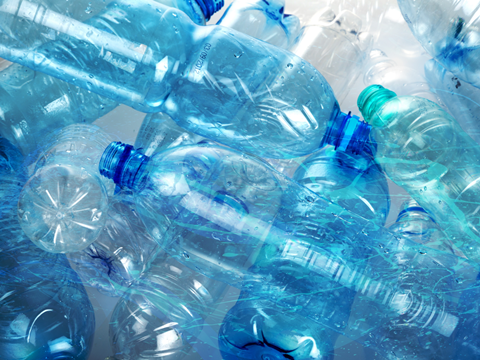
One of Europe’s ‘busiest’ Materials Recycling Facilities (MRFs) has reportedly tracked and traced 100% of the single-use plastic bottles it recycles as Citeo adopts Polytag’s UV tagging solution.
Polytag’s UV Tag technology uses food-safe fluorescent ink to apply invisible, GS1-standard QR codes directly to packaging labels; this process is compatible with standard printing methods like digital, flexographic solvent-based, and UV-cure inks.
Apparently, the solution is inexpensive, easy to integrate, and can be implemented ‘seamlessly’ into existing packaging processes.
MRFs can then use Polytag’s Plastic Detection Units to view real-time data on each item’s progress through the recycling process, which can then be shared with supply chain partners, brands, and retailers in a collaborative approach hoped to improve recycling rates.
Using this technology, Citeo could capture and access barcode-level data at the MRF in France.
Together, the collaborators hope to drive innovation in the recycling sector, with access to accurate, barcode-level data set to provide insight into the plastic packaging life cycle. In turn, the development is hoped to help brands and retailers boost recycling rates, monitor sustainability initiatives, and meet Extended Producer Responsibility requirements.
Additionally, it is expected to prepare brands and retailers for the transition from traditional barcodes into QR codes – all while unlocking the ability to tailor consumer marketing initiatives, develop loyalty programmes, and deliver on-pack instructions via smart packaging.
“Working with a global leader like Citeo and achieving a 100% detection rate in an MRF, operating at normal speed during active operating conditions, is a milestone moment for us, and the wider recycling industry,” said Alice Rackley, CEO of Polytag. “It demonstrates the undeniable effectiveness of our UV Tags for PET bottles in full-scale facility conditions.
“Our UV Tags, combined with our advanced detection technology, provide an unprecedented level of insight through the supply chain, tagging and tracing every piece of packaging. In this way, Polytag technology empowers businesses to make informed decisions, to optimise their processes and to truly embrace circularity.”
A spokesperson from the Citeo innovation project team added: “Polytag has been selected as part of an innovation project. We want to explore the potential of marking technologies and their impact on sorting performance in live environments.
“These are the first results we’ve seen and they will enable us to project the use of this new kind of data in packaging sorting.”
The news comes as Citeo’s reusable packaging system enters large food retailers in Pays-de-la-Loire, Brittany, Normandy, and Hauts-de-France this month. The system aims to facilitate reusable packaging alternatives for 16 million consumers and eventually reach national scale.
Since the article was published on Packaging Europe, Citeo has revealed Auchan, Carrefour, Coopérative U, Intermarché, Monoprix, Biocoop, E. Leclerc, and La Brasserie du Bout du Monde as the winning retailers after a call for expressions of interest; Bocoloco, Lemon Tri, NoWW, The Keepers, and TOMRA have been selected as suppliers.
Meanwhile, UK retailer Waitrose has joined Polytag’s Ecotrace Programme alongside existing members Biffa, Ocado Retail and Marks & Spencer. As an Ecotrace member, Waitrose can access the Polytag dashboard – an online hub of live, barcode-level data tracking plastic packaging materials through the recycling stream – and track its packaging throughout the disposal process as Extended Producer Responsibility legislation comes into force.
If you liked this story, you might also enjoy:
The ultimate guide to the Packaging and Packaging Waste Regulation in 2025
How are the top brands progressing on packaging sustainability?
Everything you need to know about global packaging sustainability regulation in 2025
The key to increasing the use of reusable packaging in supermarkets














No comments yet